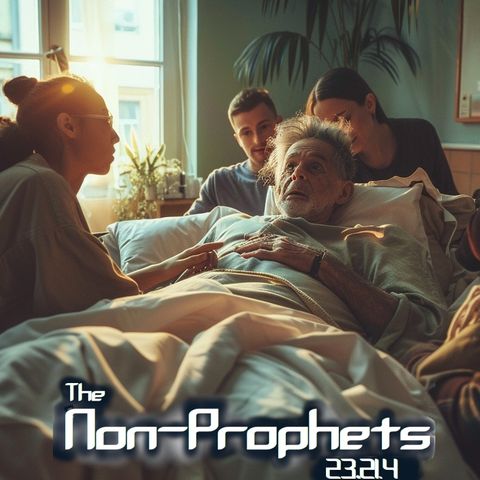Assisted Dying: What does it mean and what is the Law?

Iscriviti gratuitamente
Ascolta questo episodio e molti altri. Goditi i migliori podcast su Spreaker!
Scarica e ascolta ovunque
Scarica i tuoi episodi preferiti e goditi l'ascolto, ovunque tu sia! Iscriviti o accedi ora per ascoltare offline.
Descrizione
What do assisted dying, assisted suicide and euthanasia mean and what is the law? BBC.com, By BBC News, on March 24, 2024 https://www.bbc.com/news/uk-47158287 Assisted dying, a deeply sensitive and contentious...
mostra di piùBBC.com, By BBC News, on March 24, 2024
https://www.bbc.com/news/uk-47158287
Assisted dying, a deeply sensitive and contentious topic, has been gaining attention as several regions in the UK consider legal changes that would allow terminally ill individuals to end their lives with medical assistance. This issue is complex, varying significantly across different regions. Cindy, hailing from a country where euthanasia is legal, explores the experiences of other nations that have legalized such practices, aiming to glean lessons applicable to the US context.
The terminology in this discussion is crucial. Words like "assisted dying," "assisted suicide," and "euthanasia" must be clearly defined to ensure meaningful debate and legislative clarity. As Cindy notes, living in a country with legal euthanasia offers unique insights. In Belgium, where euthanasia has been legal since 2003, strict safeguards are in place. The process requires convincing two independent doctors, with at least a month between the request and the procedure. This thorough approach has led to a societal acceptance and normalization of the practice, demonstrating that well-structured laws can provide compassionate options without leading to misuse.
One significant point raised is the importance of bodily autonomy and the right to choose how one’s life ends. This choice is often about regaining a sense of control lost to terminal illness. It allows individuals to avoid prolonged suffering and make decisions surrounded by loved ones, rather than in isolation. This aspect of control and dignity is a cornerstone of the argument for legalizing assisted dying.
However, there are valid concerns about the impact of such legislation on vulnerable populations, such as those with disabilities or mental illness. Infidel highlights the need for stringent safeguards to ensure that individuals are making informed, voluntary decisions. Research indicates that some individuals requesting assisted death may have psychiatric symptoms affecting their competence, underscoring the necessity for thorough evaluations and oversight beyond just a primary physician’s approval.
Kelley emphasizes the importance of public discussions about assisted dying to alleviate the guilt and shock often experienced by those left behind. Open conversations can help loved ones understand and accept the decisions of those suffering, reducing the emotional burden and promoting a more compassionate societal view on the matter.
Reflecting on personal experiences with terminally ill loved ones, Cindy and Kelley discuss the profound impact of suffering and the desire for a dignified end. They argue that stigma around assisted dying prevents necessary conversations and compassionate solutions. In countries like Belgium, where euthanasia is integrated into healthcare, there is less resistance and more acceptance of this practice as a compassionate choice.
As the debate continues in the US, it is evident that any potential legislation would need to be carefully crafted with robust safeguards to protect vulnerable individuals while respecting personal autonomy. The goal would be to provide a compassionate, dignified option for those facing unbearable suffering, similar to the successful model seen in Belgium.
Ultimately, while the US may not be fully ready for widespread acceptance of assisted dying, it is a conversation that needs to be had. Public understanding, legislative clarity, and compassionate discourse are essential steps toward addressing the ethical, emotional, and practical dimensions of this complex issue.
The Non-Prophets, Episode 23.21.4 featuring Cynthia McDonald, Infidel64, Cindy Plaza and Kelley Laughlin
Informazioni
| Autore | Atheist Community of Austin |
| Sito | - |
| Tag |
Copyright 2024 - Spreaker Inc. an iHeartMedia Company
